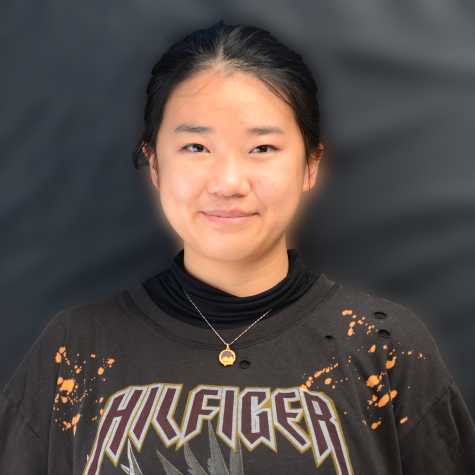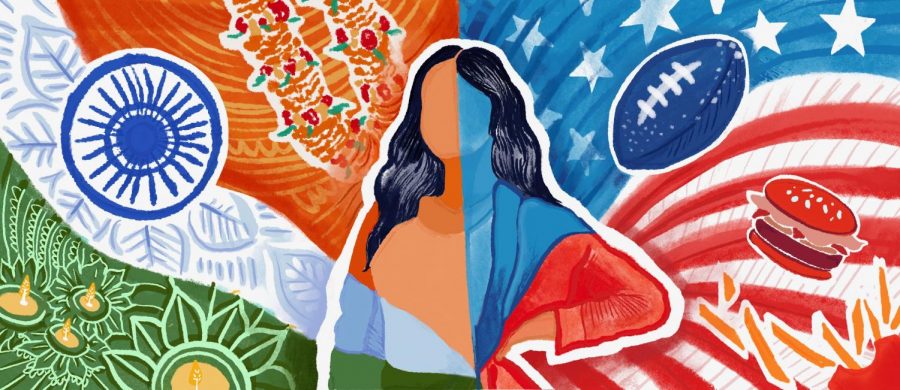Latest Netflix hit “Never Have I Ever” is a cultural reset for Hollywood
As I watched the bare exposure of my culture to millions of often judgmental eyes, I felt an inner desire to perfectly relate to Devi’s experience. I am also a second-generation Indian high schooler in California, home to a family that shares many of the same values as those of Devi’s mother. “Never Have I Ever” proves many of the “true” stereotypes right while ignoring some others.
The opening scene of the current #1 show on Netflix, “Never Have I Ever,” is enough to make colossal waves in a pool of Hollywood diversity, or rather lack thereof. Lead protagonist Devi Vishwakumar is seen praying to a shrine of Hindu gods on her first day of sophomore year, asking for a seemingly all-American list of party invitations, less arm hair and a boyfriend.
Mindy Kaling’s latest foray into the world of high school sitcoms is the amalgamation of important conversations revolving around sex, mental health, religion and most importantly the unique destruction of Indian stereotypes.
Around her predominantly white school, Devi and her two best friends—an aspiring Chinese actress and a gay African-American—are coined the name UN, a nod to their diversity. Instead of standing up to this racist name-calling, Devi is seen trying to do what we all are too guilty of: fitting in.
Her failure to assimilate is what ultimately makes her experience universal. Her frequent trips to therapy are a testament to the taboo subject of mental health in many South Asian families. Devi’s resistance to going to a Hindu prayer ritual puja depict the familiar scene of a teenager grappling with her identity and religion. The genuine love that existed between her parents breaks down cliches about Indian arranged marriage.
As a female Indian-American teen watching another female Indian-American teen on the silver screen, I’ll admit it can be hard to not get caught up in everything that went wrong in the show. The mispronunciation of a south Indian food classic like thakkali sambar or the overdone platitude of a popular, white love interest are enough to irritate me of a slight misrepresentation of my culture.
As I watched the bare exposure of my culture to millions of often judgmental eyes, I felt an inner desire to perfectly relate to Devi’s experience. I am also a second-generation Indian high schooler in California, home to a family that shares many of the same values as those of Devi’s mother. “Never Have I Ever” proves many of the “true” stereotypes right while ignoring some others.
The beauty of the show lies not in the relatability of its story but rather the melanin of its cast. In an entertainment world too-often plagued by the flagrant lack of POCs and the encouragement of racist tropes, seeing a lead actress with the same skin color as me is, in lack of better words, revolutionary. The number of high school shows featuring all-white casts is endless: “Gossip Girl,” “One Tree Hill,” “The O.C.,” the list goes on.
At the end of the day, I enjoy seeing a mesh of these two cultures. It’s interesting to watch Devi experience the all-too-familiar cultural identity crisis of the relationship between the stereotype of the nerdy Asian-American combat with a new image of an Indian girl desiring to explore her sexuality. Although it is admittedly too easy to get caught up in all the faults of “Never Have I Ever” especially for those who see themselves in it, the show represents a cultural revolution—one that POCs worldwide should rejoice at.
Varsha Rammohan (12) is the co-editor-in-chief of Harker Aquila. This is her fourth year on staff, and she likes journalism since she can meet new people...

Michelle Liu (12) is the co-editor-in-chief of The Winged Post. She joined the journalism program in her sophomore year as a reporter and became the Winged...


















![“[Building nerf blasters] became this outlet of creativity for me that hasn't been matched by anything else. The process [of] making a build complete to your desire is such a painstakingly difficult process, but I've had to learn from [the skills needed from] soldering to proper painting. There's so many different options for everything, if you think about it, it exists. The best part is [that] if it doesn't exist, you can build it yourself," Ishaan Parate said.](https://harkeraquila.com/wp-content/uploads/2022/08/DSC_8149-900x604.jpg)




![“When I came into high school, I was ready to be a follower. But DECA was a game changer for me. It helped me overcome my fear of public speaking, and it's played such a major role in who I've become today. To be able to successfully lead a chapter of 150 students, an officer team and be one of the upperclassmen I once really admired is something I'm [really] proud of,” Anvitha Tummala ('21) said.](https://harkeraquila.com/wp-content/uploads/2021/07/Screen-Shot-2021-07-25-at-9.50.05-AM-900x594.png)







![“I think getting up in the morning and having a sense of purpose [is exciting]. I think without a certain amount of drive, life is kind of obsolete and mundane, and I think having that every single day is what makes each day unique and kind of makes life exciting,” Neymika Jain (12) said.](https://harkeraquila.com/wp-content/uploads/2017/06/Screen-Shot-2017-06-03-at-4.54.16-PM.png)








![“My slogan is ‘slow feet, don’t eat, and I’m hungry.’ You need to run fast to get where you are–you aren't going to get those championships if you aren't fast,” Angel Cervantes (12) said. “I want to do well in school on my tests and in track and win championships for my team. I live by that, [and] I can do that anywhere: in the classroom or on the field.”](https://harkeraquila.com/wp-content/uploads/2018/06/DSC5146-900x601.jpg)
![“[Volleyball has] taught me how to fall correctly, and another thing it taught is that you don’t have to be the best at something to be good at it. If you just hit the ball in a smart way, then it still scores points and you’re good at it. You could be a background player and still make a much bigger impact on the team than you would think,” Anya Gert (’20) said.](https://harkeraquila.com/wp-content/uploads/2020/06/AnnaGert_JinTuan_HoHPhotoEdited-600x900.jpeg)

![“I'm not nearly there yet, but [my confidence has] definitely been getting better since I was pretty shy and timid coming into Harker my freshman year. I know that there's a lot of people that are really confident in what they do, and I really admire them. Everyone's so driven and that has really pushed me to kind of try to find my own place in high school and be more confident,” Alyssa Huang (’20) said.](https://harkeraquila.com/wp-content/uploads/2020/06/AlyssaHuang_EmilyChen_HoHPhoto-900x749.jpeg)



